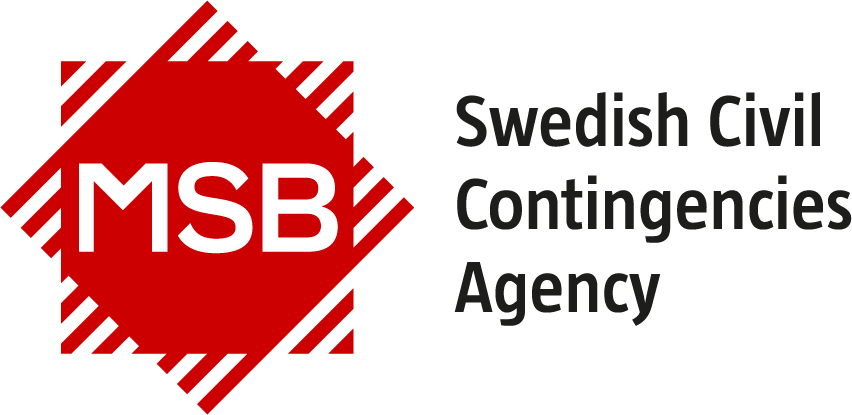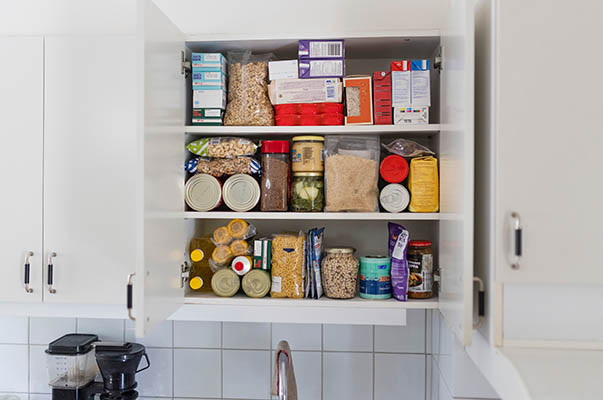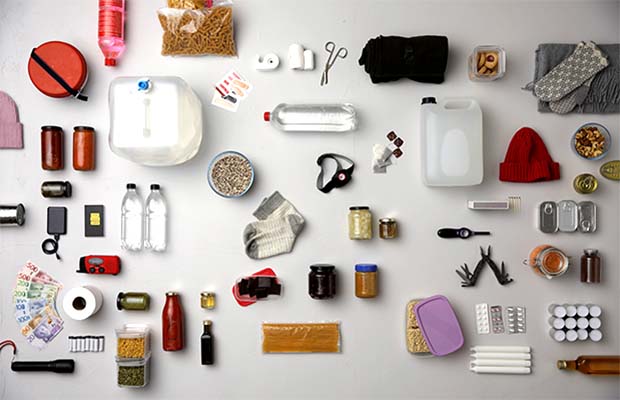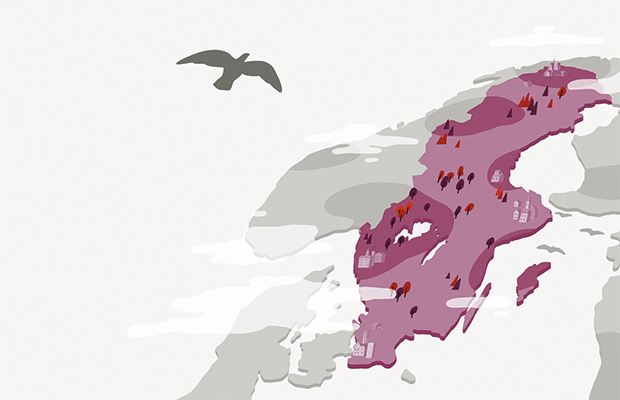Plan your home preparedness
If you are prepared, you are contributing to improving the ability of the country as a whole to cope with a major strain.
If there’s a serious storm, your IT connection goes down, or an armed conflict occurs, the things we take for granted can stop working. So it’s a good idea to be prepared. The most important things you will need are food, drinking water, heat, and the ability to receive important information. If a crisis or war happens, we will all need to play our part.
Frequent questions and answers – The home preparedness campaign
-
What’s it all about?
The Government wants everyone in Sweden to be better prepared for emergencies and wars, which is why the Swedish Civil Contingencies Agency (MSB) has been running preparedness campaigns since 2017. The goal is for everyone who can to be prepared by ensuring they have radio access and sufficient food, water, and heating for one week. We call this home preparedness. If individuals are prepared, it makes it easier for Sweden, as a whole, to handle difficult situations. We are all part of Sweden’s preparedness!
-
What do you want me to do?
It would be great if you could:
- learn about the sort of emergencies we might face – and how they might affect you and your family
- make sure you have a week of home preparedness in place so that you can continue to function as normal, even in the event of an emergency or war.
- be on the alert for fake news and rumours. -
Why now?
For several reasons. The security policy situation has worsened considerably as a result of Russia’s invasion of Ukraine. Sweden does not face any immediate threat of war, but we are affected in other ways. There is a risk, for example, that imports of both goods and services may be affected. And we are also currently being affected by the energy shortage in Europe, prices on the rise, the pandemic and climate change.
Improved public preparedness is vital, given the combination of the above factors and the prevailing general threats, risks, and vulnerabilities. This is why we are running advertising campaigns a couple of times each year to remind people how important it is to be prepared for emergencies and, ultimately, for war. It’s all part of MSB’s mandate from the Government to increase people’s resistance to emergencies and war.
-
Which of the threats we face could become a reality?
Our society is threatened by a number of emergencies. Some of them might become a reality overnight, while others could creep up on us. Climate change, for example, could result in flooding, severe storms, and forest fires. Emergencies in other countries could result in some food items being in short supply in Sweden. Disruptions to or attacks on important IT systems could impact our infrastructure, such as the power grid. They could also result in card payments and the Internet ceasing to work.
-
I can’t arrange a week’s home preparedness. What should I do?
Do what you can! Little things can mean a lot in an emergency. Focus on a few simple things:
- Get a cheap, battery-powered radio. That way, you can always listen to the news.
- Stock up on a few extra food items with a long shelf life and which don’t need to be kept cold. Choose the sort of things that you and your family usually eat.
- Draw up a list of your most important phone numbers and put it somewhere where you know where to find it in a hurry.- Fill a few bottles or jars with water.
- If you take prescription drugs, make sure you have an extra week’s supply “in stock”.
- Get to know your neighbours – it makes it easier for you to work together in an emergency. Split the cost of slightly more expensive things between you so you can share them.
- Order the “If crisis or war comes” brochure from MSB. It contains several inexpensive and easy preparedness tips.- Learn from the experience of anyone you know who has experienced war or a natural disaster, for example.
-
Aren’t we supposed to prepare for 72 hours?
72 hours has previously been specified in information issued both by the US and Canadian authorities, and by several local authorities and organisations in Sweden. In 2020, the Swedish Government took a defence policy decision to recommend that private individuals establish preparedness for one week. The recommendation since then has been for one week, but 72 hours’ preparedness is, of course, better than nothing.
-
What happens after one week?
It’s impossible to say for certain. But that one week will have given society the time to gather its resources and deal with the situation as well as it can.
-
Why do I even need to prepare?
You need to prepare because Sweden’s preparedness is based on everyone – authorities, organisations, companies, and private individuals – accepting their share of the collective responsibility and playing their part. If you can take responsibility for you and your family, you should do it. This will stop you being a burden on society, because there are others who will need society’s help. If you currently need a little extra support in your everyday life, then it will help you if others have prepared and can take care of themselves, so that you can still get the help you normally receive.
-
Can’t society take care of me?
We’re used to most things – things like electricity, water, transport, shops, and payment systems – working in Sweden. But you need to be prepared for the fact that in an emergency or war, not everything will work for everyone as it usually does. The people with the greatest need will be prioritised when it comes to providing help, while the authorities and organisations do everything they can to improve the situation as quickly as possible. Plans have been put in place to handle a variety of incidents, but you need to be prepared too, and we all need to play our part.
Latest reviewed: 4 November 2022




